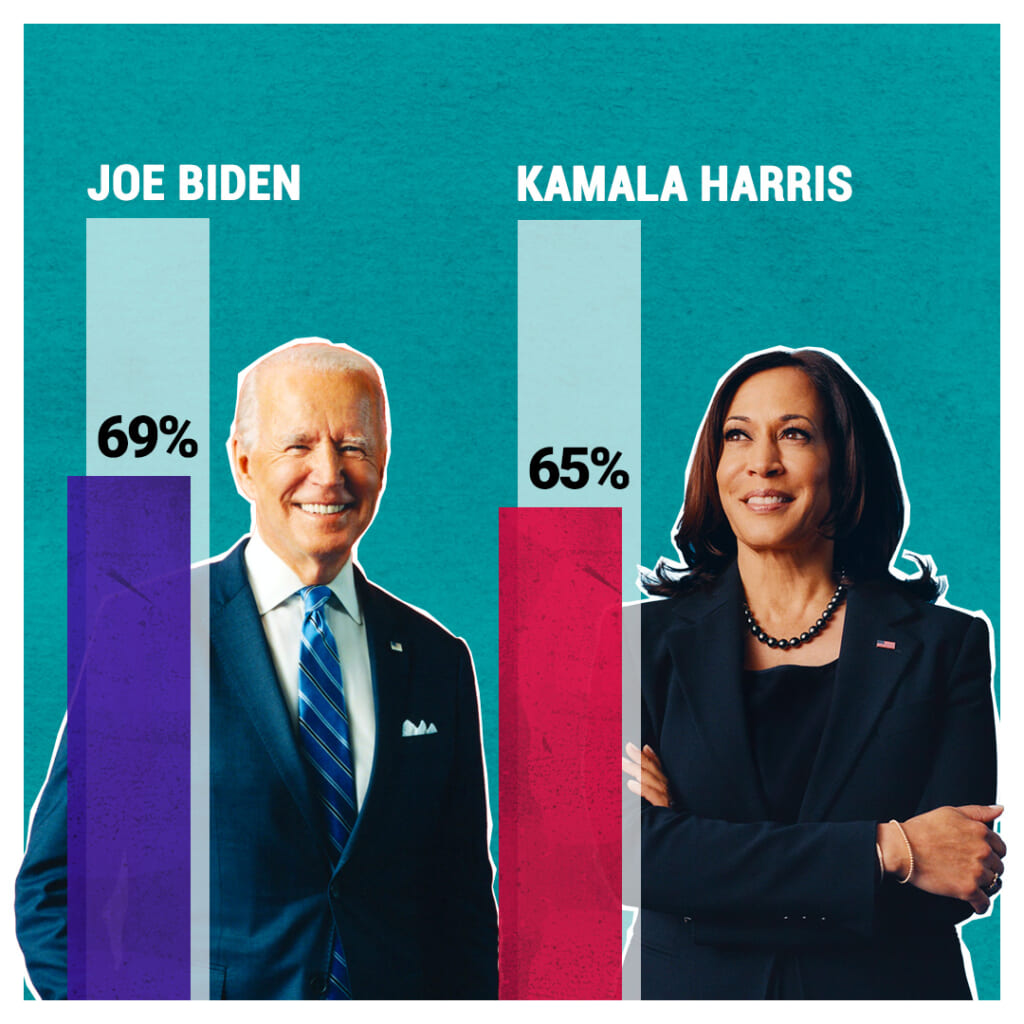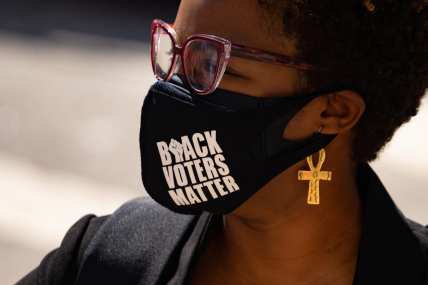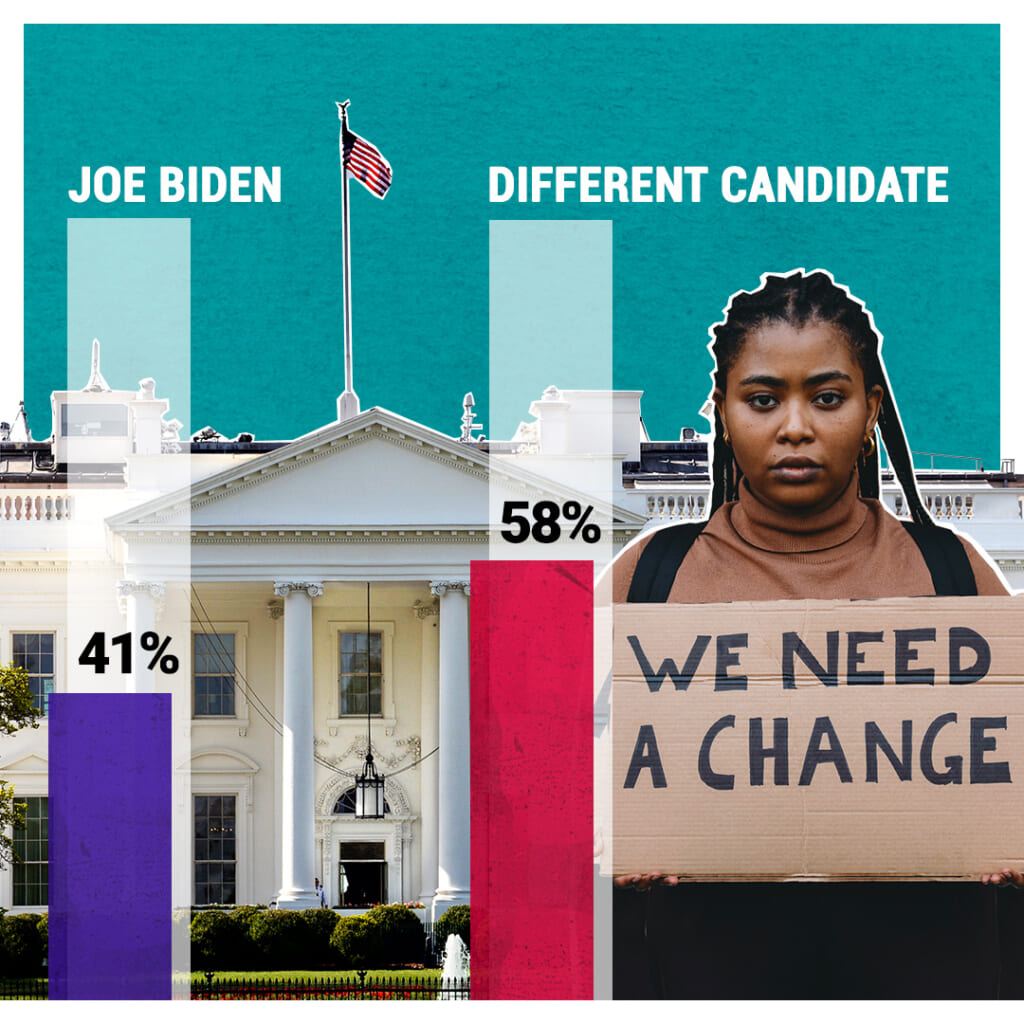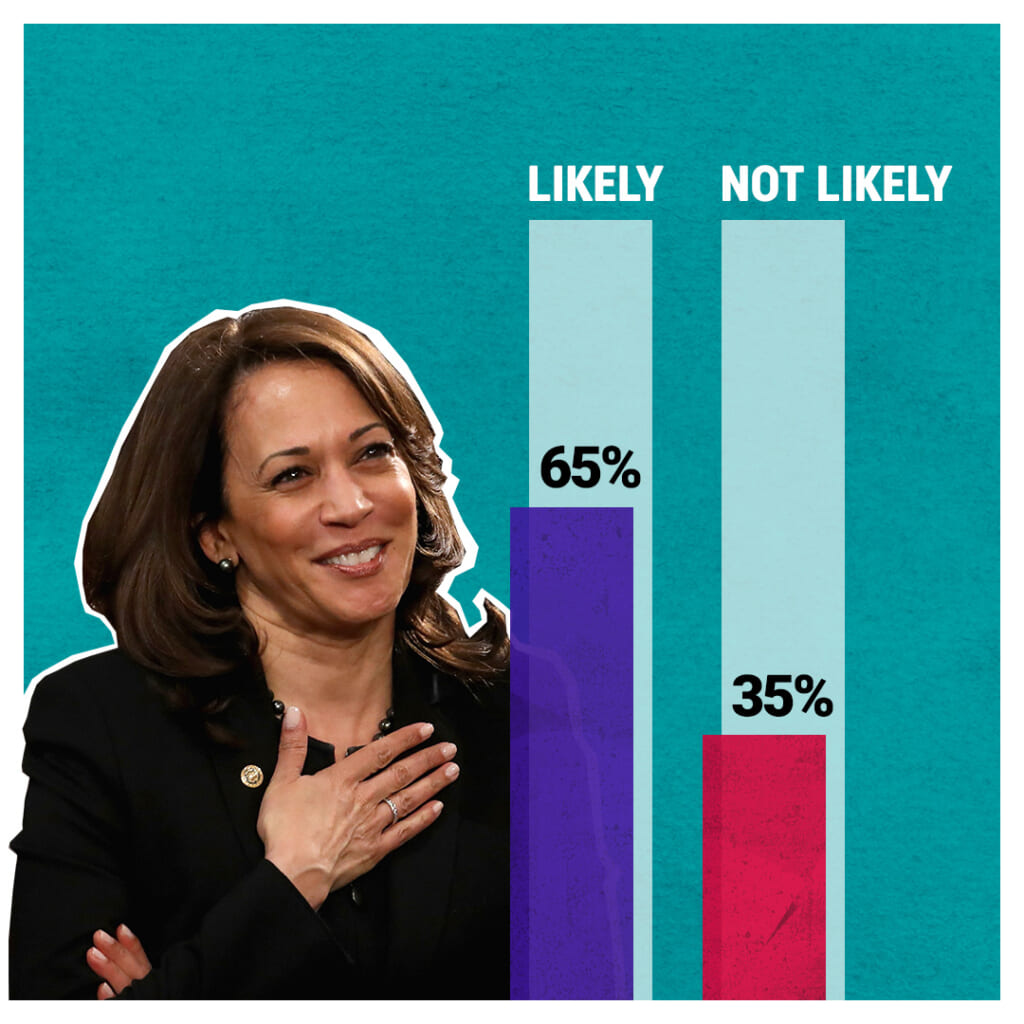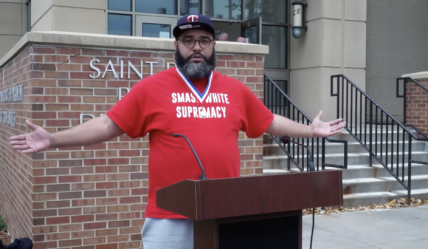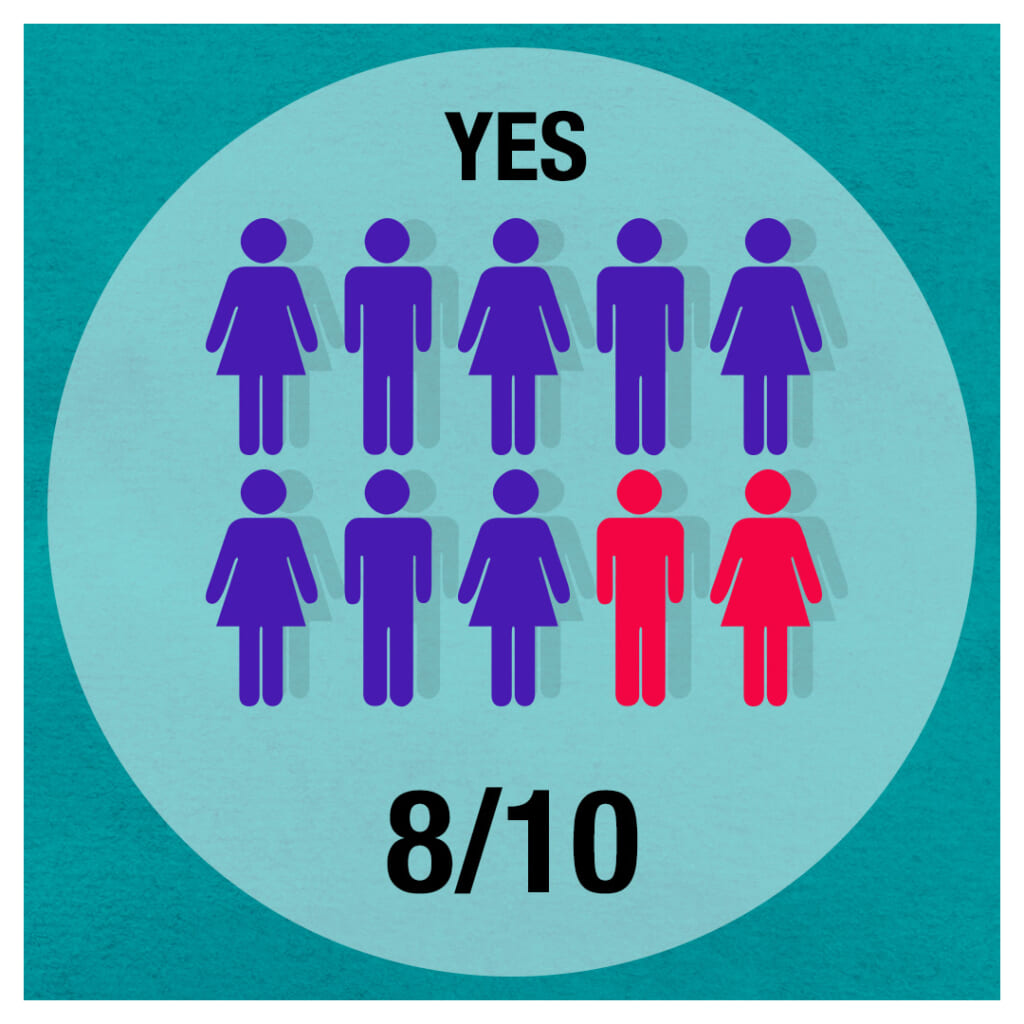Black voters solidly approve of Biden and Harris, less firm on the president’s reelection in TheGrio/KFF survey
TheGrio/KFF Survey of Black Voters finds that Black voters overall have favorable opinions of President Joe Biden and Vice President Kamala Harris weeks ahead of the 2022 midterm elections.
A new TheGrio/KFF survey found that Black voters solidly approve of the job performances of President Joe Biden and Vice President Kamala Harris weeks ahead of the 2022 midterm elections. However, Black Americans are less firm in their support of Biden as a 2024 candidate – at least depending on which Black voters you’re speaking to.
Contrastingly, a strong majority of Black voters say they would cast their ballot for Harris if she were on the presidential ticket in the future.
Overall, do you approve or disapprove of the way Joe Biden is handling his job as president and the way Kamala Harris is handling her job as vice president?
In a nationwide poll of 1,000 Black registered voters conducted Aug. 24 through Sept. 5, 69% approved of Biden’s performance as president. But when asked if they believed Democrats should nominate a different candidate in the next presidential election, a majority (58%) preferred someone other than Biden.
However, Black voters who identify as Democrats or those who are Democrat-leaning are more split. Nearly half of those voters (49%) say the party should renominate President Biden. The other half (50%) say they would prefer that Democrats choose a successor for the 2024 presidential election.
There’s also a generational divide among Black voters on whether Biden should be renominated. About 6 in 10 (59%) Black Democrats and leaners under the age of 50 say they want someone else to run for the White House, while 4 in 10 would like to see Biden pursue a second term as commander in chief. However, among Black Democrats and leaners 50 and older, nearly 6 in 10 (57%) say they want Biden to be renominated, and 42% say they want the Democratic Party to nominate someone else.
Christina M. Greer, associate professor of political science at Fordham University, told theGrio that compared to Biden’s “pretty low” national approval ratings in recent months, his approval among Black voters surveyed by TheGrio/KFF shows Black Americans are “still pretty supportive of Joe Biden.”
“Those are solid numbers,” said Greer.
As for why Black voters are less solid about President Biden seeking a second term, theGrio and MSNBC contributor said, “Joe Biden was in many ways a bridge candidate to take us out of the sort of dark Trump years, but that doesn’t necessarily mean that for a lot of Black voters, that an 81-year-old should necessarily be at the top of the ticket.”
She continued, “Some of his gaffes, even though he’s been gaffe-prone for the past 30 years, will be a distraction. They’re looking for possibly someone a little younger, maybe a little more direct in some of their analysis of policy … similar policies, but just the packaging of the candidate would be a little different.”
Do you think the Democratic Party should renominate Joe Biden as the party’s candidate for President in 2024, or do you think the party should nominate a different candidate for President in 2024?
Biden, 79, will be 81 on Election Day in 2024. While he has repeatedly said he intends to run, he’s also signaled that the decision isn’t definite. Last week, the president told CNN’s Jake Tapper that after the midterm elections, he’s “going to be in the process of deciding.”
As for Vice President Harris, 65% of Black voters – nearly the same percentage of Black voters who are content with Biden – approve of her job performance. The same percentage of Black voters who approve of Harris as vice president also say they are likely to vote for her if she were on the presidential ballot at some point in the future.
But there’s a notable racial aspect in how Black voters see Harris as a viable presidential candidate. Eighty percent of them believe most Black voters are likely to vote for Harris, even though a smaller percentage (65%) personally support her for a future White House run. Even fewer of them believe most white Democrats would vote for Harris (55%).
If Kamala Harris runs for president in the future, how likely is it that you would vote for her?
Julian Wamble, assistant professor of political science at George Washington University, told theGrio that Black voters likely want a “sure thing” that Harris can win support among white voters before placing their bets on her as a presidential candidate.
Barack Obama notably saw a shift in Black support after he won the Iowa primary in 2008, signaling to Black voters that white voters would actually support a Black candidate for president.
“There’s a need for kind of assurance of your likelihood to win … I think that there are much higher levels of doubt about white people voting for Black politicians. And Black people are very aware of that,” said Wamble.
Greer thinks Black voters are “strategic” in their assessment of presidential candidates, adding that gender could also become a factor.
“This moment in our country is not a hospitable environment for a Black female candidate at the top of the ticket. So that could hurt her from the possibility,” she said. Greer also recalled that Harris “did not do well when she ran a nationwide campaign” in her presidential bid in the 2020 cycle.
The Biden-Harris administration has made significant efforts in the past two years to reach Black communities and center racial justice in its policy implementation. On his first day in office, President Biden signed an executive order to advance racial equity across the federal government’s 90 agencies. In addition to nominating a record number of Black officials in his cabinet and across the executive branch, Biden successfully nominated Justice Ketanji Brown Jackson as the nation’s first Black woman to serve on the U.S. Supreme Court.
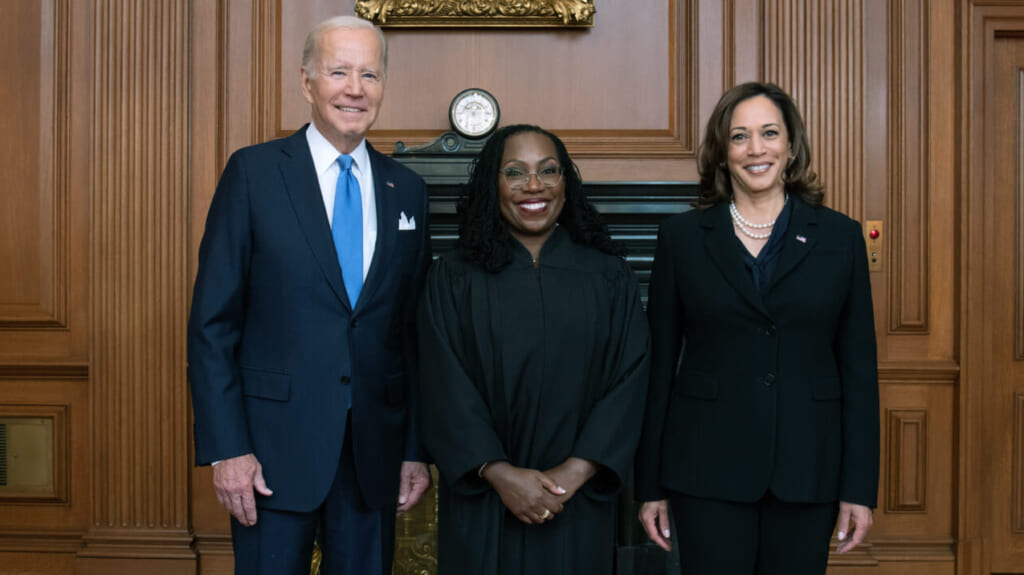
Biden also signed into law the Emmett Till Antilynching Act, made Juneteeth a federal holiday to commemorate the end of slavery in the United States, and helped pass broad policies and laws with a racial lens, such as providing additional student debt relief for Pell Grant recipients (many of whom are Black and Latino) and, more recently, granting pardons to all federal offenders of simple possession of marijuana.
While the TheGrio/KFF survey of Black voters indicates strong support for what Biden has been able to deliver so far, it is not as strong as the 92% who voted for him in the 2020 presidential election.
“The administration is doing a lot with racial equity, racial justice, but there seems to be a disconnect with the articulation of what they’re doing, how they’re doing it, why they’re doing it,” said Greer.
She argued that “a lot of Black voters want Joe Biden to be a lot more strong and heavy-handed when it comes to dealing with Congress.” She continued, “We have unified government right now, but it doesn’t really seem as though we do because of the two [Democratic] senators [Joe Manchin and Kyrsten Sinema] and just the ability to get real legislation passed that we’ve had on the table.”
Despite his efforts, Biden was unsuccessful at getting the George Floyd Justice in Policing Act and the John Lewis Voting Rights Advancement Act signed into law – once seen by Black Americans as critical legislation to curb police racial bias and misconduct, and limit voter suppression.
“There can be a recognition and an appreciation for the symbolism of all of these things,” Wamble said about the Biden-Harris administration’s diversity and racial equity efforts, “but also a recognition that the lived experiences of many Black people have remained unchanged despite all of this.”
TheGrio/KFF survey also found that the biggest concern for Black voters and their families is the economy (73%) – this is as inflation and high gas prices continue to hit the pocketbooks of millions of Americans. Moreover, 81% of Black voters said they feel the economic system is stacked against people like them.
Do you think the economic system in the U.S. is stacked against people like you?
Speaking to the issue of inflation, Wamble noted that Black people are especially being hurt by high prices for goods and services like gas and food.
“Black voters – because of the way that the economic distribution is stratified by race – are being disproportionately affected by a lot of these things,” he said.
However, Wamble said Biden’s student debt forgiveness program could stand to bridge the gap between Black voters who support him and those who do not. “Once people are able to actually see it through and get notifications that however much of the forgiveness that they are eligible for has actually been forgiven, then that will make a difference,” he said.
About the Survey
The Survey of Black Voters is the first partnership survey between theGrio and KFF, a nonprofit organization focused on research and analysis of health and other national issues. Teams from KFF and theGrio worked together to develop the questionnaire and analyze the data, and both organizations contributed financing for the survey. Each organization is solely responsible for its content.
The survey was conducted Aug. 24–Sept. 5 with a nationally representative, probability-based sample of 1,000 adults who identify as Black or African American and are registered to vote. The sample includes all voters who identify as Black or African American, including those who also identify as Hispanic or multi-racial. The sampling design includes Black registered voters reached online through the SSRS Opinion Panel and the Ipsos KnowledgePanel; to reach Black voters who do not use the internet, additional interviews were conducted by calling back respondents who previously participated in an SSRS Omnibus poll and identified as Black and said they did not use the internet. The combined telephone and panel samples were weighted to match the sample’s demographics to the national U.S. population of Black voters using data from the Census Bureau’s 2020 Current Population Survey (CPS) Voting and Registration supplement. Sampling, data collection, weighting and tabulation were managed by SSRS of Glen Mills, Pennsylvania, in close collaboration with KFF researchers.
The results have a margin of sampling error of plus or minus 4 percentage points for results based on the full sample of Black voters. The full methodology and question-wording are available here.
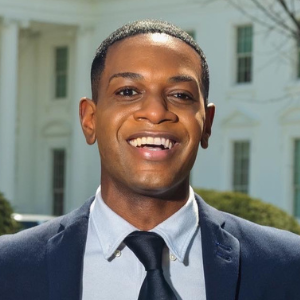
Gerren Keith Gaynor is the Managing Editor of Politics and Washington Correspondent at theGrio. He is based in Washington, D.C.
TheGrio is FREE on your TV via Apple TV, Amazon Fire, Roku and Android TV. Also, please download theGrio mobile apps today!
